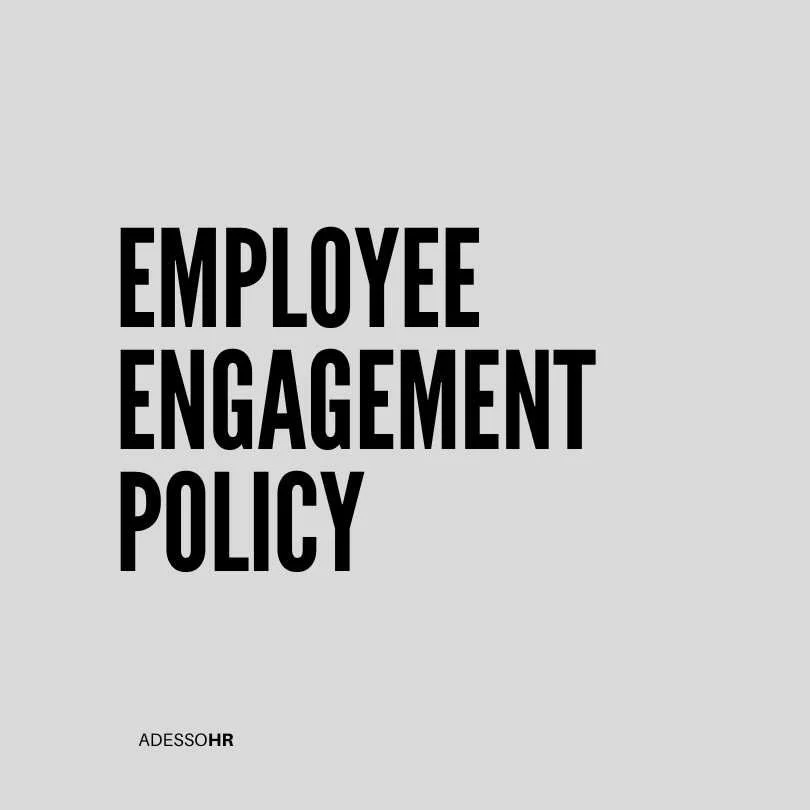
NEWS
Diversity, Equity, Inclusion, and Belonging (DEIB)
DEIB policies are crucial for creating a workplace culture that values diversity, equity, inclusion, and belonging. They ensure fair treatment, benefit decision-making, and enhance the organization's reputation.
Employee Engagement Policy
An employee engagement policy is a set of guidelines and initiatives promoting employee engagement and job satisfaction. In Ontario, implementing such a policy is becoming increasingly important for businesses, as engaged employees are more productive and committed to organizational goals. The procedure can include open communication, employee development, recognition and rewards programs, and promoting work-life balance and employee well-being.
Wellness Initiatives Policy
A wellness initiatives policy promotes employee health through programs that encourages healthy behaviours. Its goals is to create a supportive work environment that boosts productivity, reduces healthcare costs, and increases engagement. Effective implementation can improve workplace culture and employee quality of life.
Importance of Clear Policies
Having clear policies in the workplace is crucial for maintaining a positive and productive work environment. Policies provide consistency, clarity, and compliance with relevant laws and regulations. They help manage risk and foster employee engagement, leading to a stronger and more engaged workforce.
Hiring Policy for Summer Students: A Guide for Businesses
A Hiring Policy for Summer Students outlines the guidelines and procedures for recruiting, selecting, and hiring students for summer employment. It is important for businesses to have a structured policy in place to ensure fair and efficient hiring practices. Hiring summer students can benefit a business by providing fresh perspectives, increased productivity, and potential long-term talent. In this blog post, we explore the benefits of hiring summer students and the key components of a successful Hiring Policy for Summer Students.
What is an Applicant Screening Policy
An applicant screening policy is a set of guidelines and procedures that a company uses to evaluate job applicants. It includes processes such as background checks, reference checks, and interviews to determine the suitability of an applicant for a particular job. The policy ensures that the company is hiring the best candidate for the job while mitigating potential risks to the business.
Remote Work Policy
Remote work has become a popular option for employees and employers alike. A Remote Work Policy is a set of guidelines and expectations for employees who work remotely. It outlines details such as communication protocols, work hours, and expectations for work quality. AdessoHR can help businesses create and implement a Remote Work Policy that works for their specific needs and ensures success for both the company and its employees.
Communicable Illness Policy
A communicable illness policy outlines the steps an organization will take to minimize the spread of illness in the workplace. It includes guidelines for employees to follow when they are sick, protocols for notifying the employer of a communicable illness, and measures for preventing the spread of illness, such as social distancing and increased cleaning. A well-defined policy can help protect the health and safety of employees, reduce the risk of outbreaks in the workplace, and demonstrate a commitment to employee well-being.
Importance of a Protected Leave Policy
A protected leave policy is an essential aspect of any organization's human resources policies. It ensures that employees have job protection while taking time off work due to certain personal or family situations. This policy benefits both the employer and employee, as it fosters a positive work environment and enhances employee retention. In this blog post, we will discuss the importance of a protected leave policy and how AdessoHR can help your organization implement one.









